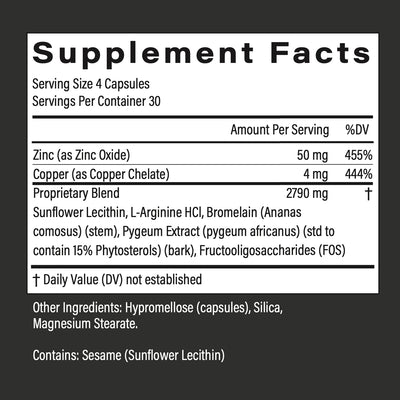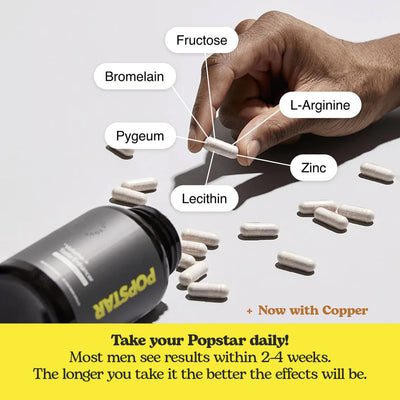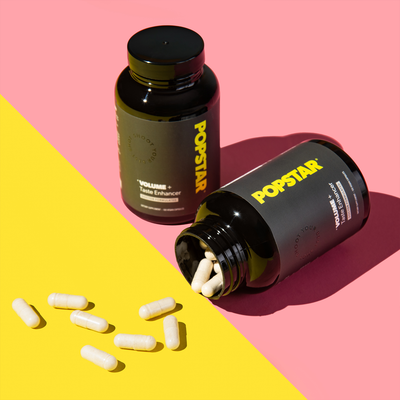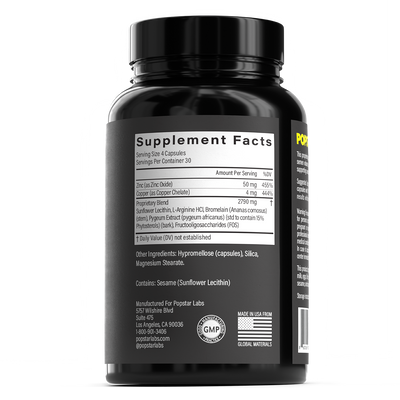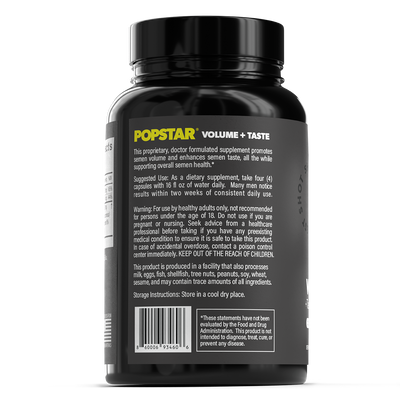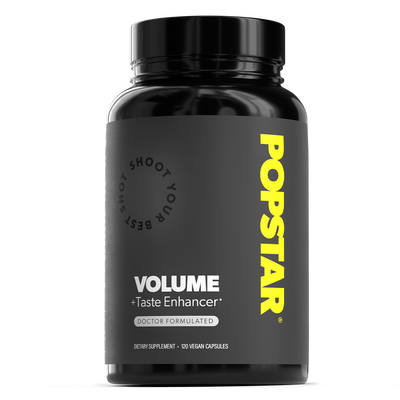Understanding ovulation is crucial not just for women but also for men who wish to comprehend the intricacies of fertility and conception. Ovulation plays a pivotal role in reproductive health, and being informed about it can enhance your ability to plan for a family or address potential fertility issues. This comprehensive guide delves into what ovulation is, its significance, and how it intersects with men's health.
Table of Contents
- What Is Ovulation?
- The Menstrual Cycle: An Overview
- Signs and Symptoms of Ovulation
- Ovulation and Fertility
- How Does Ovulation Affect Men's Health?
- Common Misconceptions About Ovulation
- FAQs About Ovulation
- Tips for Supporting Fertility
- When to Seek Medical Advice
- Final Thoughts
What Is Ovulation?
Ovulation is a phase in the female menstrual cycle when a mature egg is released from the ovary. This process typically occurs once every menstrual cycle and is essential for reproduction. The egg travels down the fallopian tube, where it may be fertilized by sperm, leading to pregnancy.
Key Takeaways:
- Ovulation usually occurs around the middle of the menstrual cycle.
- It is the most fertile period in a woman's cycle.
- Understanding ovulation can aid in family planning and identifying potential fertility issues.
The Menstrual Cycle: An Overview
The menstrual cycle is a monthly series of changes that a woman's body goes through in preparation for the possibility of pregnancy. The cycle is governed by hormonal fluctuations and is typically around 28 days but can vary from woman to woman.
Phases of the Menstrual Cycle
- Menstrual Phase: Shedding of the uterine lining, resulting in menstruation.
- Follicular Phase: FSH (Follicle Stimulating Hormone) stimulates the ovaries to produce follicles, each housing an immature egg.
- Ovulation Phase: A surge in LH (Luteinizing Hormone) triggers the release of a mature egg.
- Luteal Phase: The body prepares for possible pregnancy; if fertilization doesn't occur, the cycle restarts.
Understanding these phases can help in predicting ovulation and managing reproductive health.
Signs and Symptoms of Ovulation
Identifying ovulation can be crucial for couples trying to conceive. Here are some common indicators:
- Changes in Cervical Mucus: It becomes clear and stretchy, resembling egg whites.
- Basal Body Temperature Shift: A slight increase in body temperature occurs after ovulation.
- Ovulation Pain: Some women experience mild pelvic or abdominal pain.
- Breast Tenderness: Hormonal changes may cause sensitivity.
- Increased Libido: Natural increase in sexual desire.
Monitoring these signs can help pinpoint the fertile window.
Ovulation and Fertility
Ovulation is directly linked to a woman's fertility. Here's how:
Fertile Window
The fertile window is the period during which intercourse is most likely to result in pregnancy. It includes:
- The five days leading up to ovulation.
- The day of ovulation itself.
- The day after ovulation.
Sperm can survive in the female reproductive tract for up to five days, making this window critical for conception.
Tracking Ovulation
Methods to track ovulation include:
- Ovulation Predictor Kits: Detect LH surge in urine.
- Basal Body Temperature Charting: Monitoring temperature changes over time.
- Calendar Method: Calculating based on cycle length.
Accurate tracking can assist in family planning or identifying ovulatory disorders.
How Does Ovulation Affect Men's Health?
While ovulation is a physiological process in women, it has implications for men's health, particularly in the context of fertility and relationships.
Understanding Fertility Timing
Men who are informed about ovulation can:
- Coordinate with their partners for optimal conception times.
- Reduce stress related to infertility concerns.
- Engage in proactive family planning.
Emotional and Psychological Impact
Knowledge about ovulation can influence a man's emotional well-being by:
- Enhancing communication with his partner.
- Reducing anxiety around conception efforts.
- Improving intimacy and relationship satisfaction.
Addressing Male Fertility Factors
Recognizing that fertility is a shared responsibility encourages men to:
- Get regular health check-ups.
- Adopt a healthier lifestyle to improve sperm quality.
- Consult professionals if conception is delayed.
Common Misconceptions About Ovulation
Misinformation can hinder family planning efforts. Here are some myths debunked:
Myth 1: Ovulation Occurs on Day 14 of Every Cycle
Reality: Ovulation can vary widely among women and even from cycle to cycle.
Myth 2: A Regular Period Equals Regular Ovulation
Reality: It's possible to have menstrual bleeding without ovulation (anovulatory cycles).
Myth 3: Ovulation Can't Be Felt
Reality: Some women experience mittelschmerz, a mild pain during ovulation.
Myth 4: Only Women Need to Worry About Fertility Timing
Reality: Male fertility factors contribute equally to conception challenges.
FAQs About Ovulation
This section addresses frequently asked questions to provide clarity on ovulation and its impact on fertility and men's health.
1. What Is the Best Time to Conceive?
The best time to conceive is during the fertile window—the five days before ovulation, the day of ovulation, and the day after. Having intercourse during this period increases the chances of sperm meeting the released egg.
2. How Can I Tell If My Partner Is Ovulating?
Signs your partner may be ovulating include:
- Changes in cervical mucus.
- Slight rise in basal body temperature.
- Increased sexual desire.
- Mild abdominal discomfort.
Open communication with your partner can help identify these signs.
3. Does Ovulation Occur Every Cycle?
While many women ovulate regularly, some may experience anovulatory cycles due to stress, hormonal imbalances, or medical conditions. If ovulation is irregular, it may affect fertility.
4. Can Lifestyle Affect Ovulation?
Yes, factors such as stress, excessive exercise, poor nutrition, and obesity can disrupt hormonal balance and ovulation. Encouraging a healthy lifestyle can support regular ovulation.
5. How Long Does the Ovulation Phase Last?
The ovulation phase itself is brief; once the egg is released, it remains viable for about 12 to 24 hours. However, because sperm can live up to five days, the fertile window is extended.
6. Can Ovulation Tests Predict Fertility?
Ovulation tests detect the surge in LH that precedes ovulation, helping predict the most fertile days. While useful, they should be used in conjunction with other tracking methods for best results.
7. Is It Possible to Increase Ovulation Frequency?
Medical interventions can sometimes regulate ovulation in women with irregular cycles. Treatments may include hormonal medications prescribed by a healthcare provider.
8. How Does Age Affect Ovulation?
Women's fertility peaks in their 20s and gradually declines after age 30, with a more significant drop after 35. Ovulation becomes less predictable, and egg quality diminishes with age.
9. Do Men Have a Fertility Cycle Similar to Ovulation?
Men produce sperm continuously and do not have a fertility cycle like women. However, sperm quality can fluctuate based on lifestyle factors and overall health.
10. Can Stress Impact Ovulation?
Yes, high stress levels can disrupt hormonal balance, potentially delaying or inhibiting ovulation. Stress management techniques can support reproductive health.
11. What Role Do Hormones Play in Ovulation?
Hormones like FSH, LH, estrogen, and progesterone orchestrate the menstrual cycle and ovulation. Imbalances can affect the release of the egg and overall fertility.
12. Can Ovulation Be Painful?
Some women experience ovulation pain, known as mittelschmerz, which is generally mild and short-lived. Severe pain may indicate other conditions and should be evaluated by a doctor.
13. How Does Ovulation Affect Mood and Behavior?
Hormonal fluctuations during ovulation can influence mood, leading to increased libido and energy levels. Awareness of these changes can enhance intimacy and communication between partners.
14. Are There Medical Conditions That Affect Ovulation?
Conditions such as polycystic ovary syndrome (PCOS), thyroid disorders, and hyperprolactinemia can disrupt ovulation. Medical evaluation and treatment can help manage these issues.
15. Can Diet Influence Ovulation?
A balanced diet rich in nutrients supports hormonal health and regular ovulation. Antioxidant-rich foods, healthy fats, and adequate protein intake are beneficial.
Tips for Supporting Fertility
Both partners can take steps to enhance fertility and support healthy ovulation.
Maintain a Healthy Lifestyle
- Nutrition: Eat a balanced diet rich in vitamins and minerals.
- Exercise: Engage in regular, moderate physical activity.
- Sleep: Aim for 7-9 hours of quality sleep per night.
Manage Stress
- Practice relaxation techniques such as meditation or yoga.
- Consider counseling or support groups if needed.
Avoid Harmful Substances
- Limit alcohol consumption.
- Avoid tobacco and recreational drugs.
- Minimize exposure to environmental toxins.
Schedule Regular Health Check-Ups
- Consult healthcare providers for preconception care.
- Address any underlying medical conditions.
When to Seek Medical Advice
If conception hasn't occurred after a year of regular, unprotected intercourse (or six months if the woman is over 35), it's advisable to consult a fertility specialist. Other reasons to seek medical advice include:
- Irregular or absent menstrual cycles.
- Known reproductive health issues (e.g., PCOS, endometriosis).
- Previous miscarriages or fertility concerns.
- Signs of hormonal imbalances.
Early intervention can identify potential issues and provide appropriate treatment options.
Final Thoughts
Ovulation is a critical component of reproductive health that extends its significance to men, especially in the realms of fertility and partnership. By understanding ovulation, men can better support their partners, engage in informed family planning, and address shared fertility challenges. Open communication and mutual awareness foster a stronger relationship and increase the chances of conception when desired.
This comprehensive guide is intended for informational purposes and does not replace professional medical advice. If you have concerns about fertility or ovulation, consult a qualified healthcare provider for personalized guidance.





























